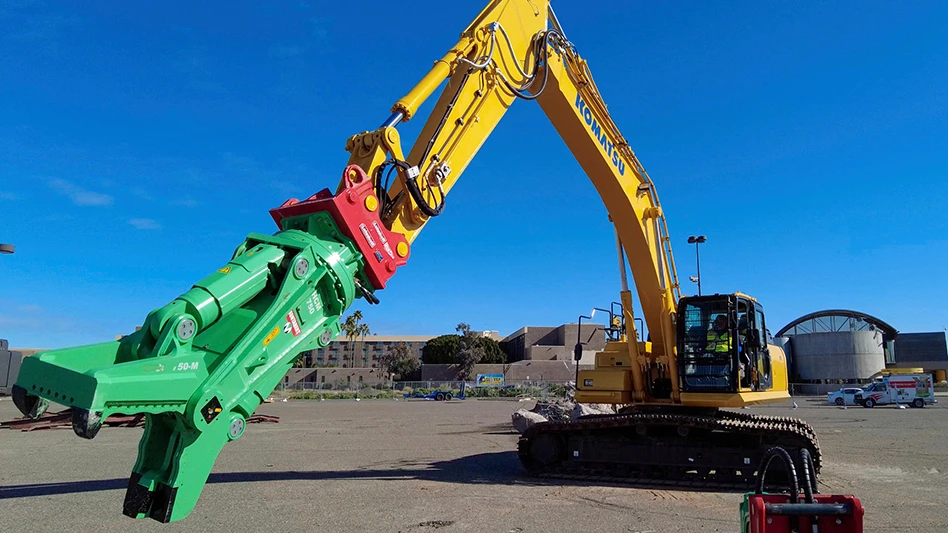
Photo courtesy of InfraBuild
Steady construction activity largely has been a good news story for the United States economy since the lifting of most pandemic restrictions. While one indicator shows that activity being on track, another points to a slowing of momentum in the sector.
In May, according to U.S. Bureau of Labor Statistics data summarized by the Arlington, Virginia-based Associated General Contractors of America (AGC), construction payroll employment increased in 39 U.S. states compared with one year earlier.
Approximately half of all states (26) also increased employment levels this May compared with the prior month.
States with healthy increases include Texas, Ohio and Alaska, while Tennessee, Maryland and Maine have cooler construction job markets.
Despite the hiring, construction labor shortages “remain acute,” in part because demand for construction remains varied by project type, according to AGC staff and member companies.
“Although some project types are slowing, there is unrelenting competition for workers for data centers, manufacturing plants, and power and infrastructure projects in much of the country,” says Ken Simonson, chief economist for the AGC. “The industry’s 'war for talent' is driving up labor-related costs faster than in other industries.”
The construction employment landscape may be set to change if activity at architectural firms, as measured by the American Institute of Architects (AIA)/Deltek Architecture Billings Index (ABI), stays on its current path.
Surveys conducted by the Washington-based AIA and Virginia-based information services firm Deltek reveal architectural firms throughout the U.S. billed out smaller amounts this May compared with the prior month and with May of last year.
Year on year, architects in all four ABI regions (Northeast, Midwest, South and West) issued invoices worth less this May compared with May of 2023. With 50.0 representing invoice stability, the four regions averaged out these index numbers last month: Northeast, 47.7; West, 46.3; South, 46.0; and Midwest, 41.7.
The Midwest figure is noteworthy because, just 10 months ago, the region was an ABI star performer, being the only region with an index figure above 50, at 51.6. Subsequently, the region’s drop to 41.7 could be considered significant.
Month on month, the Midwest drop also is apparent, as that region carried a 44.2 index figure in April of this year. The West region also experienced a drop from its April ABI figure of 47.8.
However, two ABI regions improved their billings totals this month compared with the prior month: the Northeast rose from 45.9 to 47.7 and the South moved up from a 44.7 ABI in April to 46.0 in May.
An AIA/Deltek question on “megaproject” involvement in the May survey shows just 6.2 percent of respondents say they have worked on one or more $1 billion projects in recent years. That could indicate architectural involvement in such projects is either limited or reserved for a handful of large firms.
Latest from Construction & Demolition Recycling
- Cielo investor requests annual meeting
- CDE sets up washing plant on Long Island, NY
- NWRA: NIOSH cuts a step in the wrong direction
- Ferrous price hikes could be poised to pause
- Northstar secures 15-year lease extension for asphalt shingle recycling facility
- Greenwave asks for SEC filing extension
- Construction Plastics Initiative lines up projects
- ShearCore adds dealership group in Canada






